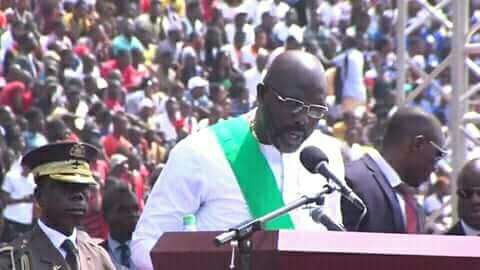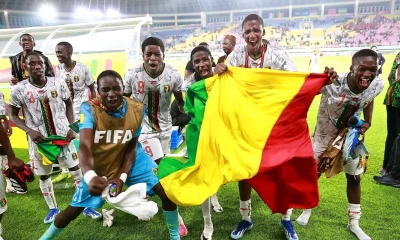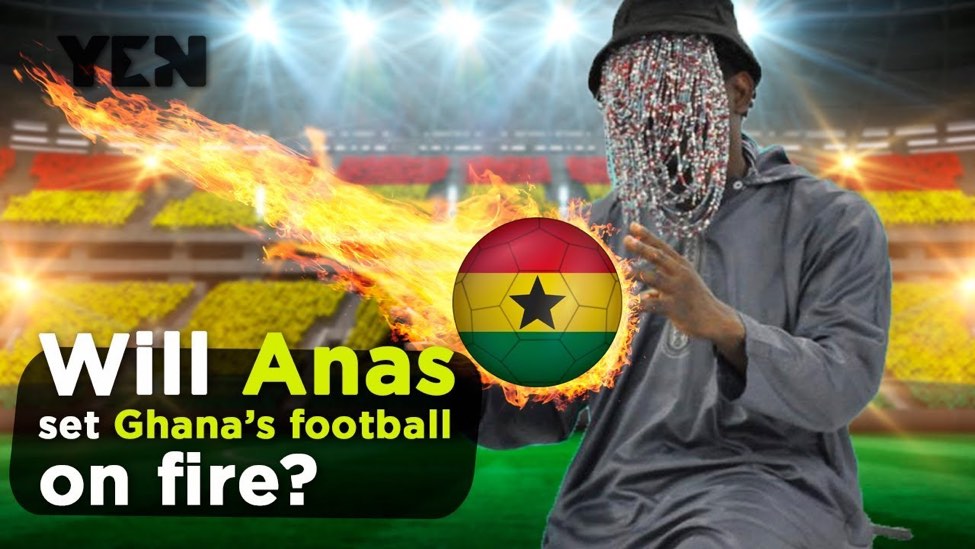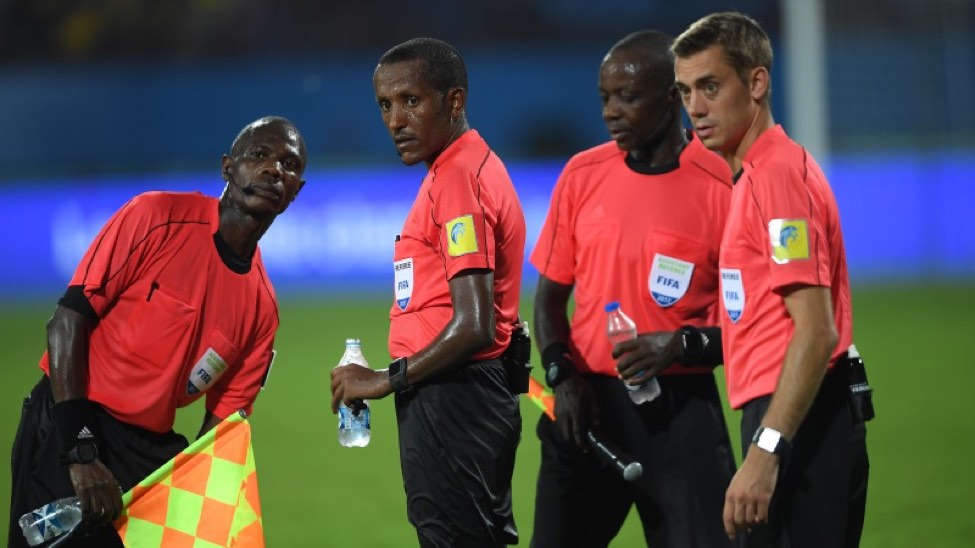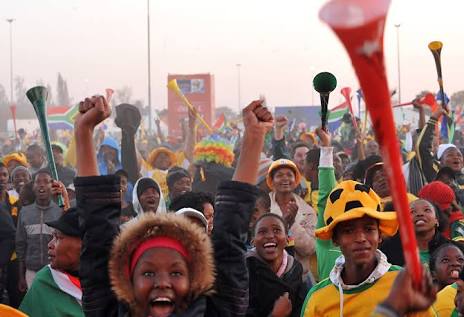The Political Premier League in Liberia kicked off on 10th October 2017 to elect a new President out of 22 candidates. The Premier League is the top level of a league system, contested by clubs, but in politics, it is contested by candidates.
No candidate won a majority in the first round of the presidential vote, so the top two finishers, CDC standard-bearer Amb. George Weah and UP standard-bearer Vice President Joseph Boakai competed in a run-off on 26th December. The second round was originally scheduled for 7 November, but was postponed after LP standard-bearer Cllr. Charles Brumskine, in third place, challenged the result in the Supreme Court. The Supreme Court dismissed the challenge, which would have forced a replay of the match of the first round had it been successful, allowing the second round to proceed on 26 December. Soccer legend Weah won with 61.5% to beat opponent, Boakai who obtained 38.5% of the votes.
Background
Born and raised in the Clara Town slum of Monrovia, Weah is a member of the Kru ethnic group, which hails from south-eastern Liberia’s Grand Kru County, one of the poorest areas of the country. His father, William T. Weah, Sr. was a mechanic while his mother, Anna Quayeweah (deceased), was a seller. His success from the pitch to the stage can be attributed to hard work, determination and humility.
He was spotted in his early days by current Togo coach Claude Le Roy, who introduced him to Arsene Wenger and it is from there that Weah went on to do exploits. He has played for Young Survivors youth club, Mighty Barrolle (very briefly), Invincible Eleven, Tonnerre Yaoundé, AS Monaco, Paris Saint-Germaine, AC Milan, Chelsea, Manchester City and Al Jazira. He retired as a player in 2003 at age 37.
The Legend Becomes a Leader
After 22 years of active football career and 13 years into politics, George Tawlon Manneh Oppong Ousman Weah, a football legend of humble beginnings, has been sworn in as the 24th president of the Republic of Liberia, succeeding Africa’s first elected female president, Ellen Johnson Sirleaf, popularly known as political Messi.
He was officially given the mantle of authority to lead the West African nation for the next six years.
Weah’s politic feat carries a sentimentalism for a man who spent 14 years playing for clubs in France, Italy, and England.
His inauguration held at the country’s home stadium, Samuel Kanyon Doe Sports Complex, was attended by several former football icons including; Cameroon’s Samuel Eto, Nigerian duo Jayjay Okocha and Sunday Oliseh and Senegal’s El Hadji Diouf.
But it all began when current Arsenal manager Arsène Wenger first brought him to Europe, signing him for AS Monaco in 1988. Weah then moved to Paris Saint-Germain in 1992 where he won Ligue 1 in 1994 and became the top scorer of the 1994–95 UEFA Champions League and then after, signed for AC Milan in 1995 for four successful seasons, winning Serie A twice. His most notable goal in Italy saw him run the length of the field against Verona. He moved to the English Premier League towards the end of his career and had spells at Chelsea and Manchester City, winning the FA Cup at Chelsea, before returning to France to play for Olympique Marseille in 2001, and subsequently ending his career with Al-Jazira in 2003 In the United Arab Emirates (UAE). At the international level, he represented Liberia at the African Cup of Nations on two occasions, 1996 in South Africa and 2002 in Mali, and made an overall representation of his beloved country Liberia with 60 caps and scoring 22 goals for his country.
Weah set a new world record in 1995, when he was named as a FIFA World Player of the Year and also won the Ballon d’Or, becoming the first and to date, the only African player to win the prestigious sports awards. In 1989, 1994, and 1995 he was also named the African Footballer of the Year and in 1996, he was named African Player of the Century.
A Hero in a Different Light
Weah became involved in politics in Liberia following his retirement from football. He along with some closed associates formed the Congress for Democratic Change (CDC) and ran unsuccessfully for President in the 2005 election, losing to Ellen Johnson Sirleaf in the second round of voting. In the 2011 election, he was relegated to the Vice Presidential spot and ran alongside Cllr. Winston Tubman. He was subsequently elected to the Liberian Senate for Montserrado County in the 2014 elections.
As the winner of the Liberian Political Premier League, Weah will serve as the chief patron of Sports of the country he once wore number 14 for on the playing pitch.
From the pitch to the stage, the soccer legend has struck Liberia’s winning goal as its new leader on both local and international stages once more, but clad in a presidential suit this time.
As much as this was the first time in 74 years that Liberians witnessed a peaceful democratic transition of power from one leader to the other, it all changed the course of Liberia’s political future bringing it into a limelight of progressiveness.
The last peaceful transfer of power between two democratically elected presidents took place in Liberia in 1944, when president Edwin Barclay was replaced by William Tubman.
The enthusiasm was high as the day appeared to be one of the best days in the lives of thousands of Liberians- majority young people. It is no secret that Weah is the most popular political figure head of Africa’s oldest Republic, Liberia.
This was established by the overwhelming excitement from Liberians across the country as the football legend was sworn in. As early as 4:00 AM, thousands of his supporters and Liberians made their way to the country’s national stadium as today (22nd January 2018) signaled the dawn of a new day in Liberia. Many believe that the football legend is that long awaited president to bring the much anticipated change they have waited for over the years.
[perfectpullquote align=”full” cite=”” link=”” color=”” class=”” size=””]“Our time has finally come! This is our government,”[/perfectpullquote]
several young people shouted as they made their way to the stadium.
Congratulations Striker.
CO-AUTHOR: ANTHONY KOKOI
